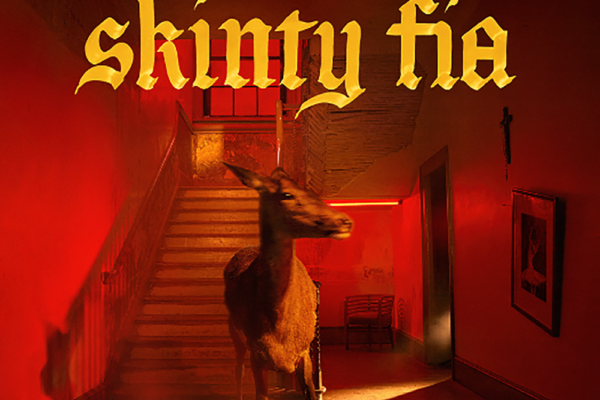- Yes, this is his Nebraska.
- To say that Conor Oberst bares his soul is now past the point. He does. Every album is a thinly veiled roman à clef and Ruminations is no different. On the album he talks about breakdowns and fights, the psychologist and the authors he’s read. His frailty and that of all humans are writ large the same here as on Lifted or Digital Ash. You could piece together who Conor is today, in 2016; the same you could with I’m Wide Awake, It’s Morning or Upside Down Mountain. What makes this album is that he’s boiled down his “Self” both lyrically and musically to give us something that Conor Oberst might call a Conor Oberst album.
The Essential Self is the concept of who a person is without any of the attendant pressures of society. The idea is introduced on “Gossamer Thin,” but it is present throughout the whole album because it is these pressures that Oberst is suffering from. On “Next of Kin,” he sings “Yeah, I met Lou Reed and Patti Smith/It didn’t make me feel different/I guess I lost all my innocence/Way too long ago.” The idea being that meeting defining artists should cause awe, and it doesn’t anymore. It’s just Oberst’s life, now. And this inability to cope with who Conor Oberst, singer is versus Conor Oberst, human is the reason why moments earlier he is singing “something dies when a star is born.”
But Ruminations, St. Dymphna, Tachycardia, all have roots or connections to nervous illnesses, and he dwells on this. Ruminations quite literally means dwelling on the negative, or the inability to see things from a positive light. This goes a long way in explaining earlier attempts of self-destruction. On earlier albums he’s spending nights in Chicago hospitals or taking drugs in Disney Land rides. And it’s not so much that he’s changed—he’s still got the Dionysian urges—Ruminations deals with the sleepless nights and the shaking hands of alcohol withdrawal, the physical and mental symptoms. He is looking into a mirror and describing what he sees. This is Conor at his therapist’s office, not Conor as Jack Kerouac writing down his history in the most flattering light.
And so what the listener gets is clarity of presence, even if Oberst himself does not have that mental clarity. Taking a look at the lyrics sheet of any previous album of his, you’d see a jumble of words, as Oberst is the kind of writer that allowed no opportunity to use a new word or phrase go wasted. Here he pauses on phrases, lilting “especially you” at the end of “Barbary Coast (Later)” or mournfully remembering that “you all loved him once” on the song of the same title.
They are some of the shortest songs of his career—all falling under four and a half minutes—owing to his sparse arrangements. This sets Ruminations apart from the majority of his previous output where at times he had multiple drummers and string sections. Here it is just him, a guitar or piano, and a harmonica; just another layer stripped off. The effect is to draw you in to quality of song craft, rather than the quality of arrangements. And the effect is welcome on the strength of these songs, which at times might as well be Bright Eyes songs (“Next of Kin”), but in other cases (“A Little Uncanny,” “Till St. Dymphna Kicks Us Out”) feel like welcome departures in style (more Rock in the former, more Soul in the latter).
What this ends up being is one of Oberst’s finest non-Bright Eyes albums, although it fits snugly within that tradition. He’s a journeyman writer, going from Nebraska to New York to Florida to Mexico, all on a Sal-Paradisian trek to find himself. On those albums, the self he finds was never the Essential Self, it was the Conor Oberst with the artificial Bright Eyes myth on it. It took many years, and many attempts at a solo album to give us Ruminations, a glimpse at essential Conor. It’s no mistake that he would be writing and recording this album after finding himself back at home in Omaha, where it all began, with Lumberjack Records, with the Desaparecidos, with Fevers & Mirrors. Ruminations at the very heart of it is Conor Oberst’s Nebraska.
Article: Christopher Gilson
Cover Image: Shayne Hanley




